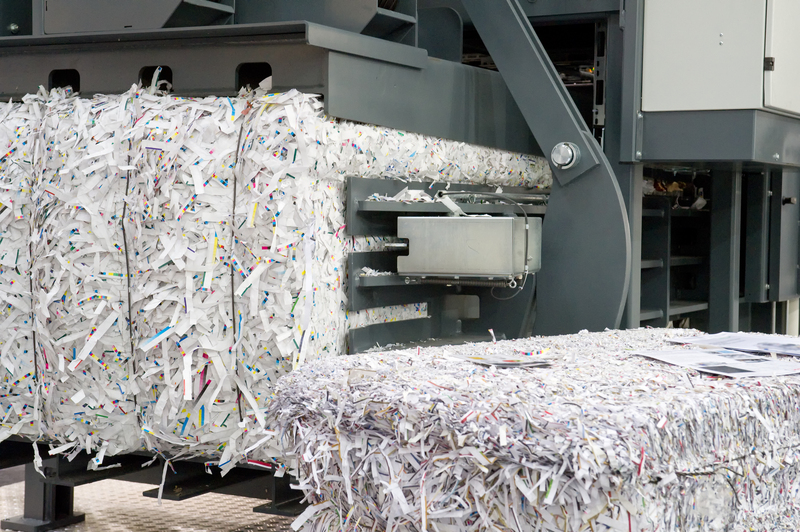In recent decades, the impact of human activities on our planet has become increasingly apparent, especially through the lens of waste management. With ecological balance being critical for sustaining life, the practices surrounding waste management play a defining role in maintaining--or disrupting--these balances. Ineffective waste disposal and practices can have long-lasting effects on the environment.
The Importance of Effective Waste Management
Effective waste management is essential in maintaining ecological equilibrium. By properly managing waste, we can reduce pollution, conserve resources, and protect ecosystems. Here are a few key reasons why it is essential:
- Pollution Prevention: Proper waste disposal can significantly minimize pollution levels in land, air, and water.
- Resource Conservation: Recycling and composting can save energy and natural resources.
- Ecosystem Protection: Protects wildlife from harmful pollutants and reduces habitat destruction.

Key Problems with Ineffective Waste Practices
Ineffective waste practices often stem from poor planning, inadequate infrastructure, and lack of public awareness. These practices can lead to significant environmental problems, such as:
- Landfill Overuse: Excessive reliance on landfills leads to land space wastage, potential methane emissions, and contamination of soil and water through leachate.
- Marine Pollution: Improper waste disposal can lead to severe marine pollution, affecting aquatic life and disrupting marine ecosystems.
- Air Pollution: Incinerating waste without proper controls can release dangerous toxins and greenhouse gases into the atmosphere, contributing to global warming.
Waste Management and its Effect on Biodiversity
Inadequate waste management does not only affect human populations--it poses a threat to biodiversity as well. Essentially, biodiversity refers to the variety of life in a given area; maintaining this variety is crucial for ecological balance. Here are some ways waste mismanagement undermines biodiversity:
Soil Contamination
When waste is not properly segregated and landfilled, it can lead to soil contamination. Hazardous waste elements seep into the soil, reducing soil fertility and harming organisms that depend on it. This can also affect plant growth, reducing food sources for herbivores and subsequent predators, thus disrupting entire food chains.
Water Pollution
Water is a crucial resource for life on Earth, but it is increasingly polluted by waste. Ineffective disposal of industrial waste and everyday household waste--like plastics--leads to severe contamination of water bodies. Chemical pollutants, heavy metals, and plastic waste significantly harm aquatic life, leading to reduced biodiversity in water ecosystems.
Air Pollution
Air quality is crucial for the survival of both plant and animal life. Open burning of waste, emissions from improperly managed landfills, and industrial activities contribute significantly to air pollution. This not only impacts human health but also affects plant growth and animal survival, thus undermining ecological stability.

Strategies for Improving Waste Management
Addressing ineffective waste management practices requires comprehensive strategies that involve government policies, community involvement, and corporate responsibility. Here are some measures that can help:
- Education and Awareness: Educating the public about proper waste segregation and disposal methods can have a profound impact on reducing waste mismanagement.
- Recycling and Composting: Promoting recycling and composting can significantly reduce the amount of waste that ends up in landfills. It's a sustainable way to manage organic and non-organic waste.
- Policy Implementation: Governments can implement policies that support sustainable waste management practices, such as landfill taxes and incentives for recycling.
- Corporate Responsibility: Businesses should adopt sustainable practices and reduce waste production by designing eco-friendly products and packaging.
Technological Innovations in Waste Management
The future of waste management relies heavily on technological innovations. Effective technologies can help streamline waste processes and reduce environmental impacts:
- Waste-to-Energy Technologies: Convert waste into useful energy, reducing landfill dependency and promoting cleaner energy sources.
- Advanced Recycling Methods: Utilize robotics and AI to enhance sorting and recycling processes.
- Bioremediation: Use of microorganisms to clean up contaminated sites, effectively reducing soil and water pollution.
Conclusion
In conclusion, ineffective waste practices can severely undermine the ecological balance and disrupt natural processes that sustain life. By implementing effective waste management strategies, we can significantly reduce environmental harm and work towards restoring ecological balance. Engaging communities, enhancing policies, and embracing technological advancements will play a pivotal role in addressing this significant global challenge. It's imperative for individuals, corporations, and governments alike to adopt responsible waste management practices for a sustainable future.
Together, we can build an environmentally conscious society that preserves our planet for future generations.